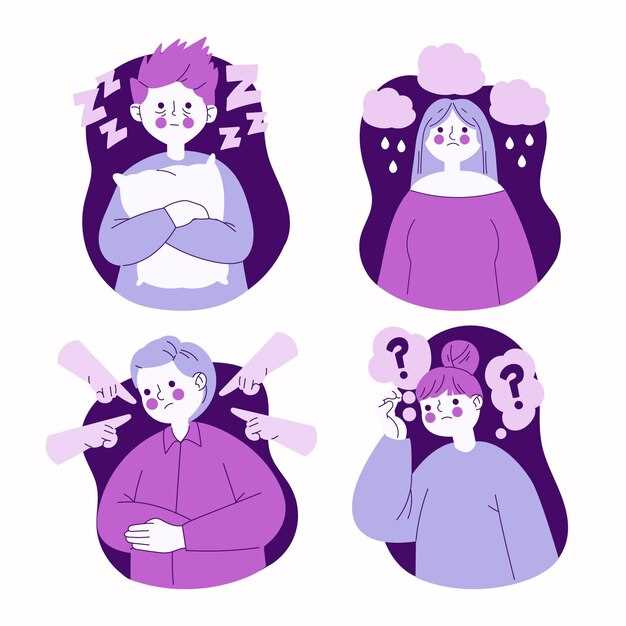
In our fast-paced modern world, many individuals seeking effective remedies for mood disorders are turning to medications for relief. If you have been curious about the possible impact of venlafaxine on bipolar disorder, read on to learn more about the intricate connection between this medication and mental health.
Uncover the role of venlafaxine in influencing mood stability and explore potential effects it may have on individuals with bipolar disorder. Unlock a deeper understanding of how this medication interacts with the complex brain chemistry involved in mood regulation.
Discover how venlafaxine, a widely prescribed antidepressant, may influence mood fluctuations and provide insights into the delicate balance required for individuals with bipolar disorder. Empower yourself with knowledge about the potential benefits and risks associated with this medication in managing bipolar disorder symptoms.
Understanding the Link between Venlafaxine and Bipolar Disorder
Bipolar disorder is a complex mental health condition characterized by extreme mood swings, ranging from episodes of depression to episodes of mania. This condition can have a significant impact on a person’s daily life and overall well-being. In recent years, there has been growing interest in understanding the potential role of venlafaxine in the management of bipolar disorder.
Exploring the relationship between venlafaxine and bipolar disorder involves delving into the effects of this medication on the symptoms and progression of the condition. While venlafaxine is primarily used to treat depression, it is important to understand how it may affect individuals with bipolar disorder, as it can potentially influence their mood stability and overall mental health.
By examining the research findings and considering the use of alternative treatments for bipolar disorder, individuals and healthcare professionals can gain a deeper understanding of venlafaxine’s potential impact on this condition. It is crucial to make informed decisions and carefully weigh the benefits and possible risks of using venlafaxine as part of a comprehensive treatment plan for bipolar disorder.
As with any medication, it is important to consult with a healthcare professional before starting or adjusting the use of venlafaxine for bipolar disorder. They can provide personalized guidance based on an individual’s unique circumstances and medical history. Together, a collaborative approach can be taken to tailor a treatment plan that addresses the specific needs and goals of each person.
While venlafaxine may offer potential benefits for managing bipolar disorder, it is essential to consider all available treatment options and discuss them with a healthcare provider. By doing so, individuals can make informed choices and work towards finding an effective and personalized approach to managing their condition.
What is Venlafaxine?
In this section, we will explore the effects of a medication called Venlafaxine on individuals diagnosed with bipolar disorder. Venlafaxine is a commonly prescribed antidepressant that belongs to a class of medications known as serotonin-norepinephrine reuptake inhibitors or SNRIs.
Understanding Bipolar Disorder
Before discussing the effects of Venlafaxine on bipolar disorder, it is essential to understand the condition itself. Bipolar disorder is a mental health disorder characterized by extreme shifts in mood, energy levels, and behavior. These shifts are categorized into two main states: manic episodes and depressive episodes.
How Venlafaxine Affects Bipolar Disorder
Venlafaxine may be prescribed to individuals with bipolar disorder to help manage depressive episodes. By increasing the levels of serotonin and norepinephrine in the brain, Venlafaxine can potentially alleviate symptoms such as sadness, loss of interest, and low energy levels associated with bipolar depression.
It is important to note that Venlafaxine is not specifically approved by the FDA for the treatment of bipolar disorder. However, some healthcare providers may prescribe it off-label based on their clinical judgment and the individual’s unique circumstances.
- Benefits: Research suggests that Venlafaxine may provide some benefits in managing depressive symptoms within individuals with bipolar disorder.
- Side effects: Like any medication, Venlafaxine can cause side effects. Common side effects may include nausea, dizziness, and changes in appetite. It is crucial to discuss the potential risks and benefits with a healthcare provider before starting this medication.
- Risks: There is some concern that Venlafaxine may trigger manic episodes or rapid cycling in individuals with bipolar disorder.
It is important to remember that the effects of Venlafaxine can vary from person to person, and close monitoring by a healthcare provider is essential when using this medication to treat bipolar disorder.
If you or someone you know is considering Venlafaxine as a treatment option for bipolar disorder, it is crucial to consult with a qualified healthcare professional who can assess the individual’s specific needs and provide personalized recommendations.
The Effects of Venlafaxine on Bipolar Disorder
In this section, we will explore the impact of the medication known as Venlafaxine on individuals diagnosed with bipolar disorder. It is crucial to understand the potential implications that Venlafaxine may have on the management and treatment of this condition.
Bipolar disorder is a complex psychiatric illness characterized by extreme mood swings, from periods of elevated and energized states to depressive episodes. The medication Venlafaxine, commonly prescribed as an antidepressant, has been subject to research regarding its effects on bipolar disorder.
Research findings suggest that Venlafaxine can potentially influence the mood stabilization of individuals with bipolar disorder. Some studies indicate that it may alleviate depressive symptoms, effectively helping to manage the depressive episodes associated with the condition.
However, it is important to exercise caution when considering Venlafaxine as a treatment option for bipolar disorder. As with any medication, potential side effects and individual responses need to be taken into account. Consulting with a healthcare professional is essential to assess if Venlafaxine is appropriate for each individual’s unique circumstances.
Alternative treatments for bipolar disorder also exist and should be explored, considering the individual’s specific needs and preferences. These alternatives might include therapy, lifestyle modifications, and other medications tailored to the individual’s condition.
Overall, understanding the effects of Venlafaxine on bipolar disorder is crucial in order to make informed decisions that promote the well-being and improved quality of life for individuals navigating this complex mental health condition.
Research Findings on Venlafaxine and Bipolar Disorder
In this section, we will explore the latest research findings regarding the usage of Venlafaxine in the treatment of Bipolar Disorder. The relationship between Venlafaxine and Bipolar Disorder has been extensively studied, and various conclusions have been drawn based on empirical evidence.
- The effectiveness of Venlafaxine in managing the depressive symptoms of Bipolar Disorder has been studied extensively. Researchers have found that Venlafaxine, when used as an adjunctive therapy along with mood stabilizers, may help alleviate depressive symptoms in some individuals with Bipolar Disorder.
- However, it is important to note that Venlafaxine should be used with caution in individuals with Bipolar Disorder, as it may potentially induce hypomanic or manic states. Research suggests that Venlafaxine has a higher risk of inducing manic episodes compared to other antidepressants.
- Furthermore, studies have shown that the response to Venlafaxine in Bipolar Disorder varies among individuals. Some patients may experience significant improvement in symptoms, while others may not respond as favorably. It is crucial to closely monitor the individual’s response and adjust the treatment plan accordingly.
- Researchers have also investigated the long-term effects of Venlafaxine on Bipolar Disorder. One study found that individuals who were treated with Venlafaxine over an extended period showed a decreased risk of relapse and improved overall functioning compared to those who did not receive long-term treatment. However, further research is needed to fully understand the long-term effects.
In conclusion, the research findings on the usage of Venlafaxine in the treatment of Bipolar Disorder suggest that it can be effective in managing depressive symptoms for some individuals. However, it should be administered with caution due to its potential to induce hypomanic or manic states. Additionally, response to Venlafaxine may vary among individuals, and close monitoring is necessary. Further research is needed to fully comprehend the long-term effects of Venlafaxine on Bipolar Disorder.
Considerations before Using Venlafaxine for Bipolar Disorder
Before considering the use of this medication for bipolar disorder, it is important to carefully evaluate various factors and take into account alternative treatment options. Understanding the potential effects, risks, and limitations of using venlafaxine is crucial in making an informed decision.
1. Individualized Treatment
Every individual is unique, and the effectiveness of venlafaxine may vary from person to person. It is recommended to consult with a healthcare professional who specializes in bipolar disorder and receive a comprehensive evaluation to determine the suitability of using venlafaxine as part of the treatment plan.
2. Medication Interactions

It is essential to inform your healthcare provider about all medications, including over-the-counter drugs and supplements, that you are currently taking. Venlafaxine may interact with certain medications, potentially causing adverse reactions or reducing the effectiveness of either medication. Your healthcare provider will be able to assess potential interactions and adjust the treatment plan accordingly.
3. Side Effects
Like any medication, venlafaxine may cause side effects. These can vary in severity and may include nausea, dizziness, insomnia, or changes in appetite. It is important to discuss these potential side effects with your healthcare provider and report any unusual or persistent symptoms that may arise during treatment.
4. Treatment Monitoring
Regular monitoring during the course of venlafaxine treatment is necessary to assess its effectiveness and ensure the well-being of the patient. This may involve frequent check-ins with a healthcare professional, tracking of symptoms, and adjustments to the dosage or treatment plan as needed.
- Close communication with a healthcare provider is key in closely monitoring and managing the effects of venlafaxine on bipolar disorder.
- Adherence to the prescribed treatment plan and reporting any concerns or changes in symptoms is crucial for optimal outcomes.
- Exploring alternative treatments or complementary therapies, such as psychotherapy or lifestyle changes, may be considered alongside or instead of venlafaxine.
Remember, each individual’s journey with bipolar disorder is unique, and the decision to use venlafaxine should be made in close consultation with a qualified healthcare professional who can provide personalized guidance and support.
Alternative Approaches to Managing Bipolar Disorder

In this section, we will explore alternative methods for managing the symptoms of bipolar disorder, focusing on treatments that differ from traditional pharmaceutical interventions.
1. Lifestyle Changes and Self-Care
One approach to managing bipolar disorder is by making certain lifestyle adjustments and practicing self-care techniques. This may involve developing a regular sleep schedule, engaging in regular exercise, maintaining a balanced diet, and managing stress levels through relaxation techniques such as meditation or deep breathing exercises. Implementing these changes can help individuals with bipolar disorder to better manage their symptoms and improve their overall well-being.
2. Psychotherapy
Psychotherapy, or talk therapy, is another effective alternative treatment for bipolar disorder. By working with a trained therapist, individuals can explore their thoughts, emotions, and behaviors, and develop strategies for coping with the challenges associated with the disorder. Common types of psychotherapy for bipolar disorder include cognitive-behavioral therapy (CBT), dialectical behavior therapy (DBT), and family-focused therapy. These therapies can provide individuals with valuable tools and techniques to navigate the ups and downs of bipolar disorder.
It is important to note that these alternative approaches should be used in conjunction with, or under the guidance of, a healthcare professional. Each person’s experience with bipolar disorder is unique, and what works for one individual may not work for another. Consulting with a healthcare provider can help individuals determine the most appropriate course of action for managing their symptoms and improving their quality of life.
